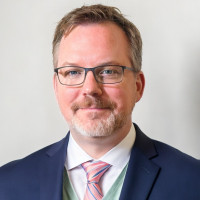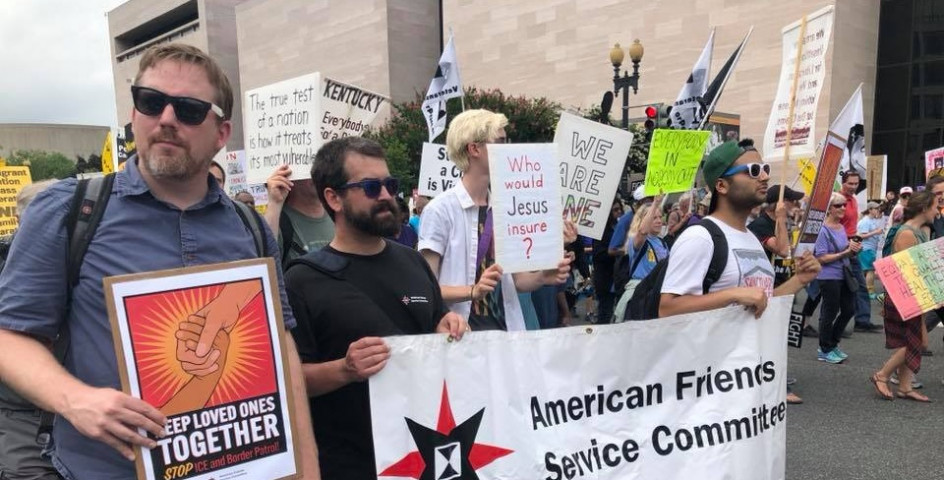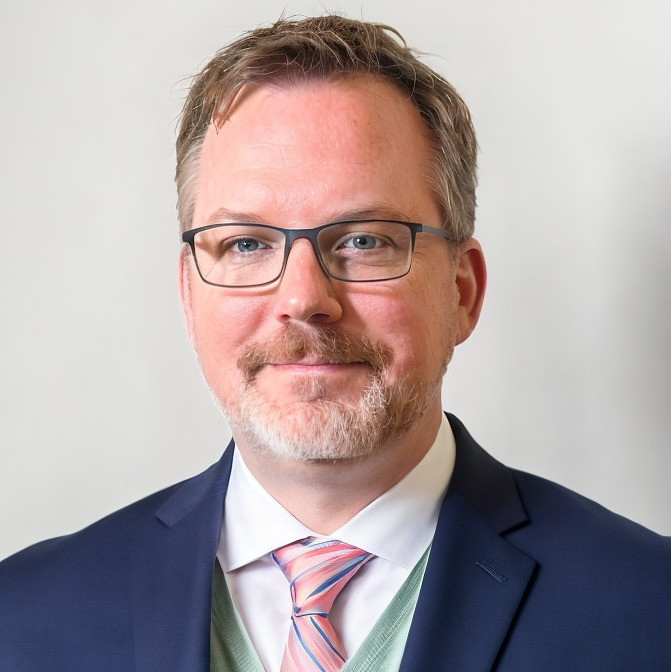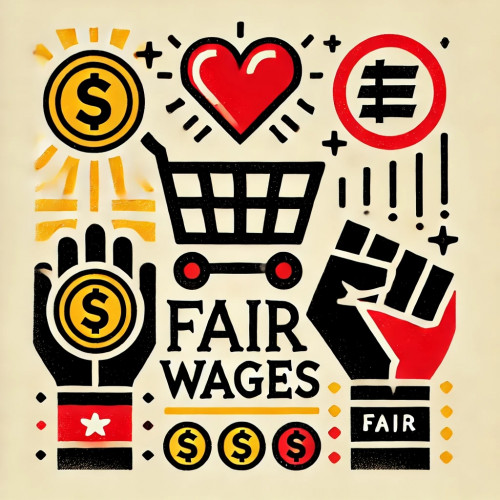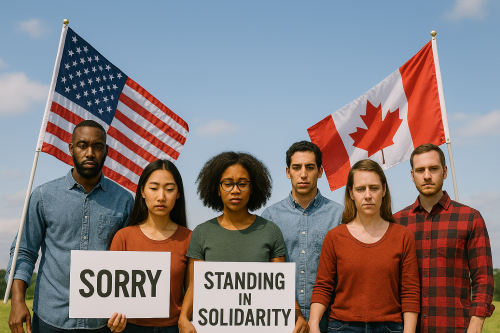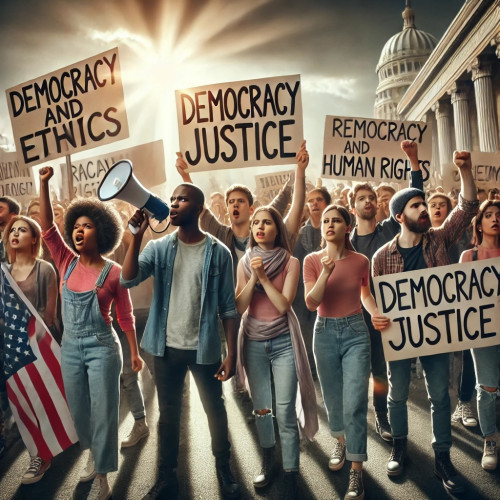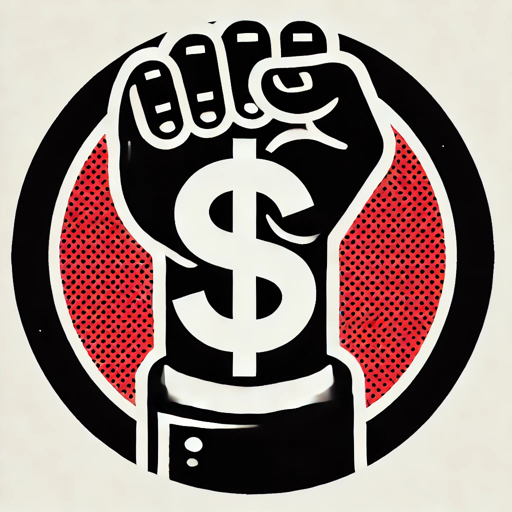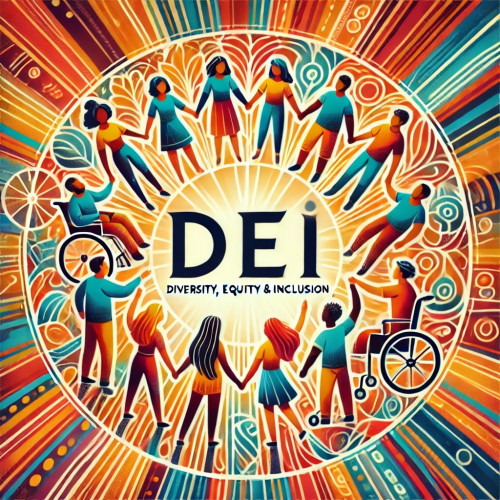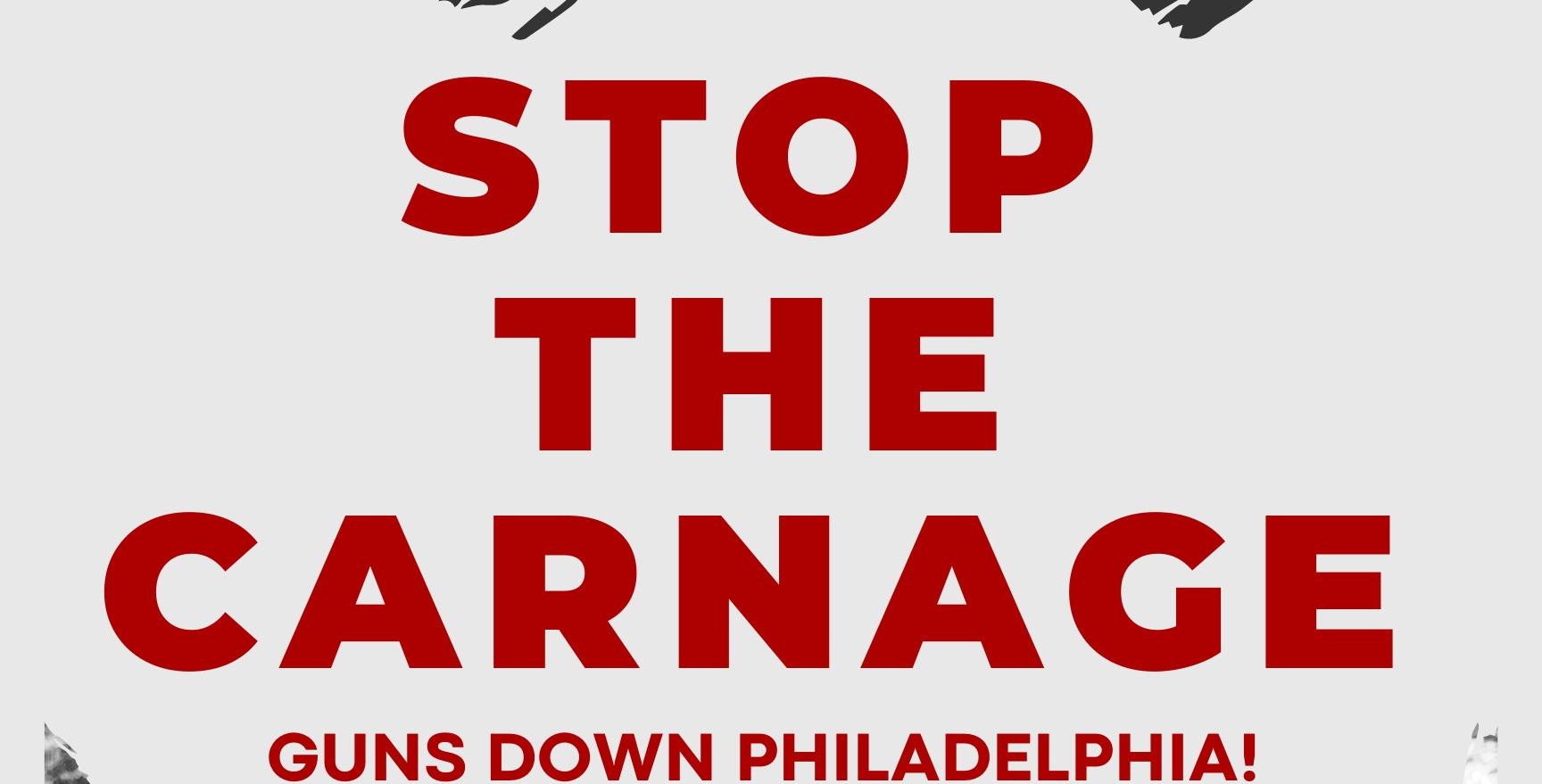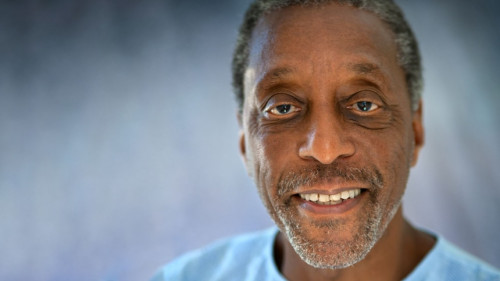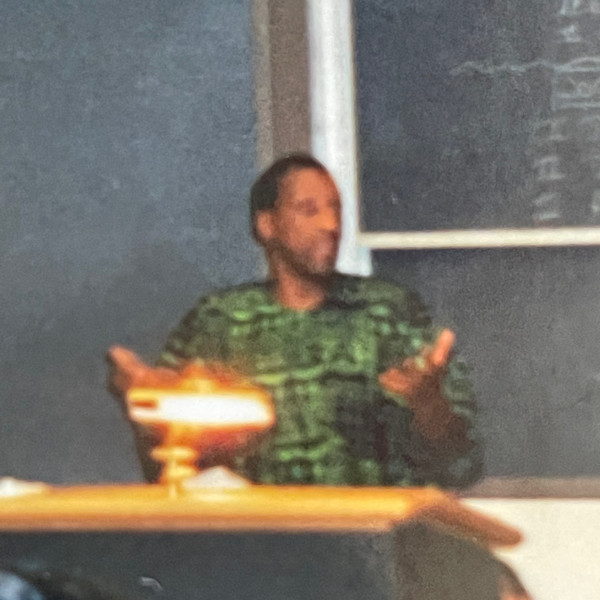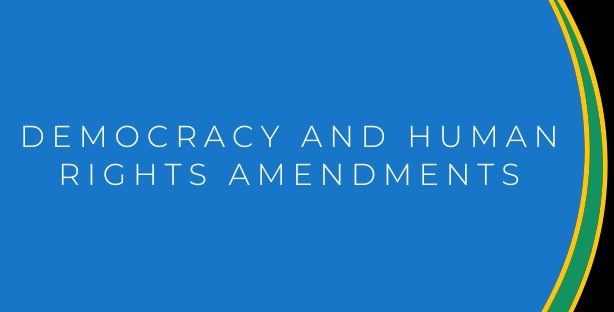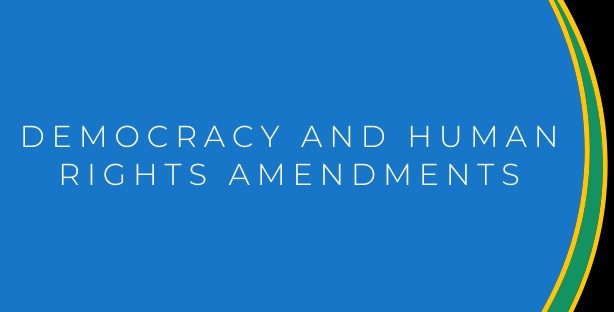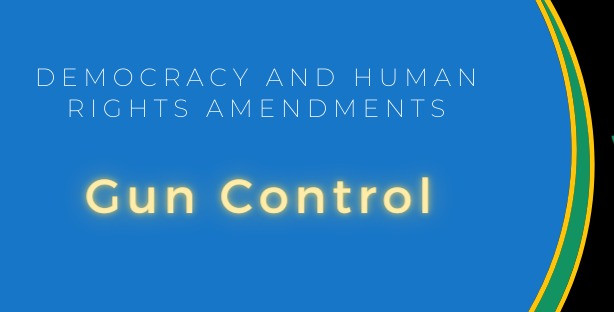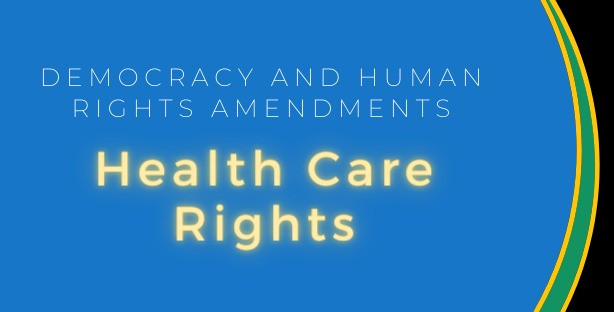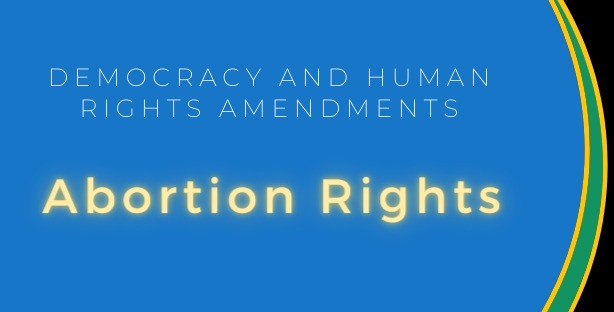We are looking for beta testers for our new boycotts/economic activism app.
Find instructions and feedback form here: forms.office.com/r/6baPGKk91z
This one of the first attempts to apply AI to activism.
Thank you in advance for your feedback as we aim to build a tools to empower your activism.
Dear Canadian Friends,
For the better part of two centuries, we have lived peaceably side by side. Our border—the longest undefended in the world—has stood not just as a line on a map, but as a symbol of our shared values: democracy, peace, cooperation, and mutual respect.
It’s in that spirit of friendship that we write to express our deepest regrets and apologies for the recent actions taken by the Trump administration that may have caused offense, strain, or disruption to our longstanding partnership. Whether it’s erratic trade decisions, diplomatic slights, or rhetoric that stokes division, we want you to know: this is not who we are.
Americans are not a monolith. Millions of us are resisting this autocratic tide. We are organizing, protesting, voting, and working every day to uphold the ideals we believe in—ideals that we know are shared with you: equity, justice, compassion, and peace. From grassroots movements to courageous local leadership, there is a fierce and growing resistance here committed to restoring the soul of our democracy.
To our Canadian brothers and sisters: thank you. Thank you for your patience, your continued friendship, and your example. You've shown the world what inclusive, principled leadership can look like. And in this moment of global uncertainty, your steady voice means more than ever.
Let us be clear: this chapter in American politics does not define the future of our country or the relationship we share with yours. Together, as peace-loving people across borders, we will overcome. The bonds of friendship, forged over centuries and sealed in shared sacrifice and common cause, are stronger than the winds of any one administration.
We’re still here. And we’re still with you.
With hope and determination,
Your friends in the United States
Please sign the letter in the comments below.
Civil Society Needs to Switch Gears...And Fast
For years, many of us working in the nonprofit and philanthropic sectors have quietly believed in a certain kind of progress. We’ve honed our technocratic expertise, built robust data systems, refined elegant theories of change, and partnered with government agencies to deliver incremental social good. We’ve lived in the promise of rational policymaking and evidence-based solutions.
But that world is gone.
The actions taken by Donald Trump and his enablers have not just bent the guardrails of democracy—they’ve shattered them. We are living through a rapid shift toward autocracy, and the institutions many of us counted on to drive positive change are either compromised, dismantled, or rendered irrelevant. If you’re feeling disoriented, that’s because the ground has shifted beneath your feet.
The Collapse of the Technocracy
Consider the nonprofit sector's traditional toolbox: research reports, policy briefs, sophisticated data modeling, program evaluations. What happens when the data goes offline? When public agencies no longer want your evidence, because evidence itself is a threat? When USAID, once a bedrock of international development, is gutted beyond recognition, leaving partners and communities in the lurch?
In the face of autocracy, carefully laid strategic plans and five-year outcome metrics aren’t just insufficient—they’re rendered largely irrelevant. Well-crafted theories of change are being blown up in real time by executive orders, authoritarian posturing, and the active dismantling of democratic norms.
Back to Our Roots
For those of us who entered this work with a calling to build a more just world, this is not the time to manage decline or retreat into our nonprofit industrial complex ways. This is a moment to rediscover the fundamental power of collective action. Historically, the most significant social and political transformations have not emerged from nonprofit programs alone but from movements that demanded systemic change. The abolition of slavery, the labor movement, women’s suffrage, the civil rights movement, and LGBTQ+ rights all came about because people organized, took to the streets, and forced political institutions to respond. While nonprofits play a role in supporting social causes, real power comes from the people—mobilized, unified, and unwavering in their demand for justice. If we want to meet the perilous moment in which we find ourselves, we must embrace movement-building as the engine of progress, rather than relying solely on incremental policy shifts and programmatic interventions.
We have to go back to the roots of social change:
Organizing, not just optimizing. We must refocus on bringing people together to build collective power. This means getting out into communities, listening deeply, creating shared agendas, and mobilizing people to take sustained action. Optimization is irrelevant if there’s no base of people ready to push for change.
Building movements, not just managing programs. Programs deliver services; movements demand transformation. Now is the time to connect across sectors and issues, uniting our work under a common banner to resist authoritarianism and promote a vision of justice and equality.
Speaking truth to power, not just submitting proposals. We can no longer rely on polite advocacy and carefully crafted white papers. We must confront power directly and publicly, calling out injustices and demanding accountability through every platform we have.
The skills we need now aren’t just about data analysis or logic models—they’re about mobilizing people, telling compelling stories, and holding the line against creeping authoritarianism.
A Call for a Sector-Wide Shift
Philanthropy cannot stay on the sidelines, treating this as just another funding cycle. Nonprofits cannot behave as though business as usual is possible. We need an abrupt, unapologetic shift toward protecting democracy itself.
This means funding and participating in:
Grassroots organizing. This includes funding community-led initiatives, training local leaders, and providing sustained financial support to organizations that mobilize people on the ground. Resources should be directed toward expanding grassroots networks and ensuring long-term engagement rather than short-term projects.
Movement lawyering. Legal defense funds, impact litigation strategies, and pro bono legal support should be scaled up to protect activists, challenge unconstitutional laws, and defend the rights of marginalized communities. Funding should also go toward training a new generation of movement lawyers who are prepared to take on cases that defend democracy.
Civic education. This means supporting programs that counter disinformation, teach civic engagement, and equip communities with the tools to participate in democracy. Initiatives should focus on historically disenfranchised populations and include digital literacy components to combat online misinformation.
Voter protection. This requires significant investment in election monitoring, legal challenges to voter suppression laws, and public education campaigns on voting rights. Funding should go toward grassroots organizations that assist with voter registration, provide transportation to polling places, and ensure that every vote is counted.
Protest infrastructure. Movements require logistical support—funding should go to providing bail funds, legal aid, medical teams, technology tools, secure communication channels, and safe spaces for organizers. Protecting the right to protest is crucial in resisting autocracy.
Digital security for activists. As authoritarianism rises, so does surveillance and repression. Investments should be made in encrypted communications, cybersecurity training, and tools that allow activists to organize safely. Funders must support digital rights organizations working to ensure activists can operate without fear of government retaliation.
In short: If the U.S. slides further into autocracy, virtually nothing else we do will matter.
There Is No Neutral
We’ve crossed the threshold where neutrality is complicity. Every nonprofit, every foundation, every leader in this space must grapple with this reality. Are we doing what this moment demands? Or are we clinging to what worked when democracy was relatively stable?
The terrain has shifted. The maps are outdated. But the work of building power, defending rights, and standing up for a multiracial, pluralistic democracy is as vital as ever.
It’s time to trade in our strategic plans for protest signs.
It’s time to move from boardrooms to the streets.
It’s time to become activists—every single one of us.
This post was developed in conjunction with Chat-GPT.
Hi there, I've been working on an economic activism app that includes some AI tooling. I'm looking for some beta testers. If you are interested please drop a comment or reaction to this post.
Everywhere I turn, a new movement is underfoot. Having declared victory over the evils of discrimination and hatred, institutions around the country are moving on from their Diversity, Equity, and Inclusion programs, known more commonly as the apparently pejorative term of “DEI.” For some reason, I had not realized that are long national nightmare of systemic oppression and derisively othering various groups had come to an end. But I sure am glad to learn the news!
We did it! Right?! After four centuries of chattel slavery, Jim Crow, and de facto wide-spread discrimination, America’s “Negro Problem” is finally solved. We accommodate our disabled friends fully in all aspects of our common life. Antisemitism, Islamophobia and other forms of religious discrimination have been transformed as we are now the religiously pluralistic society envisioned in the first Amendment. We have realized the great melting pot and are now a nation that welcomes immigrants, no matter their origin. Women have realized equal pay for equal work, their bodily sovereignty is protected, and they no longer face the incredible risk of sexual violence that they used to. Trans folks are fully accepted without fear for their lives and our gay friends feel welcome no matter where they go. Poverty? Economic class is a thing of the past and no kid goes hungry at night. Police violence targeting minorities? No longer.
Congrats America! We did it! I mean it must be true. If happy, diversity commercials-laden Target is out on DEI, then we definitely solved it. Universities deeply committed to DEI work have brought their programs to an end, so we must have reached equitable outcomes in education. Medical schools find themselves dropping DEI, so health care equity must be the case as well. So proud of us for having finally conquered the multitude of issues that DEI covers.
And to think, we did all of this less than 5 years after the murder of George Floyd, which created yet another racial reckoning in America. At the time, almost every institution released a statement recommitting to inclusion and equity. Many even forged new DEI programs or re-examined existing diversity work to determine if they were actually addressing the issues, as opposed to providing some window dressing. Sure, some organizations were merely virtue signaling, but most American institutions were truly committed to healing a nation and ensuring that we finally fulfill the promises stated in the Declaration and committed to in the Constitution. After all that hard DEI work, we are declaring victory! No need to even acknowledge equity and diversity in our language any more! Right!?
I honestly missed the memo about racism, sexism, xenophobia, homophobia, etc. being over. But what do I know? I’m a privileged straight, middle class white guy. I just figured I would have heard more about how we were able to conquer all this evil in such a short period of time. Such a momentous development certainly deserves more celebration than quietly shuttering any program that may have helped bring about these changes. I’m sure the communities that have suffered so much discrimination and hatred over the years would be hosting parties and finally feeling comfortable in this country.
I’ll tell you, Dr. King would be so proud. We finally, at long last, realized his dream. No longer is the equality check coming back marked insufficient funds. Nope. Check cashed. Our ancestors who fought for justice, risking and too often losing their lives, must be so proud of us today, dismantling our DEI work so suddenly. Our collective courage met the moment. Such valiancy should serve us well against future challenges like autocracy, climate change and massive inequality. We finally got it right America!
The violence in the city of Philadelphia has been off the charts since the beginning of the pandemic. We have to use every tool at our disposal to Stop the Carnage.
I received the news that Dr. James Turner, my professor at Cornell University, passed away. An activist and academic, his teaching, guidance, and wisdom shaped generations of students. Reading the social media posts of friends and the University, memories came to me initially in a trickle and then a downpour. Revisiting the various touch points he had on my intellectual and moral development, I gained even deeper clarity on the how much he influenced who I am today and the commitments that I have made to myself and my community about the how to live my life.
In my first semester on campus, I ran for the student council and surprisingly won, setting me on a path of student politics that consumed much of my undergrad experience and leading me to be in consistent contact with Dr. Turner. More important to my development in the fall of 1995, I stood on the outskirts of a rally with great trepidation, close enough to hear and observe, bur far enough away so that no one would confuse me as a committed participant. The topic of the rally was program houses, in particular the three residential halls themed around racial and ethnic culture that were under near constant attack from all corners: the administration, alumni, and the national press. Student speakers expressed their fears and deep frustrations in such profound ways that they moved me to the cause. If the student speeches would not have landed, Dr. Turner would have taken care of doing so. Even before speaking he was the subject of my attention. His dignified presence and serene gaze over any convening instilled a cool confidence in what he was about to say. He was usually one of the last speakers, appropriately because he could bring it home like no one else I have seen before or since. His public speaking generated an electric energy with an academic capacity to break down an opposing argument leaving it in absolute tatters. He also had a purposeful sense of humor that would lighten the indignity being perpetrated against BIPOC students and faculty, by making those in power look small, both intellectually and morally.
My views on racial justice and confronting racism were still developing. Growing up in white suburbia, I had not considered what it must have been like to be black or brown in mostly white spaces. I was a political progressive for sure drawing on my mother's civil rights and diversity commitments, but I also had the shame that much of my family was overtly racist. Being drawn to the struggle and Dr. Turner in particular, I became that white kid who took classes at Africana, who showed up regularly to Unity hour at Ujamaa Residential College, and eventually a full participant at protests concerning racial justice. If I was Dr. Turner, I would have been annoyed by this well-meaning suburban white kid, having dealt with "well-meaning" folk way too much in my life. If he was annoyed or off-put by me, he never showed it. While I was not the target of his primary commitments, he allowed appropriate space for me to learn and grow.
Indeed, the academic rigor of his classes were nothing to mess with. He could smell out which students were not prepared. Proper preparation for each class meant reading a couple hundred pages of dense philosophy, history, and cultural studies material and being able to synthesize, compare and contrast, for each class. If there was an important concept he thought you should have, he tested on it, even if it was only mentioned once on page 158 of 7th book you read that semester. I am still feeling some type of way about a couple of those tests as they were some of the most difficult in my life, but it worked. Before Dr. Turner, "David Walker's Appeal" was a gap in what I thought was my fairly solid grasp of American history. Nat Turner's revolt was a one-off incident as opposed to one of a succession of slave revolts and other resistance of Africans to the utter evils of chattel slavery. Before Dr. Turner, I had never heard of Marcus Garvey and his grand designs of the United Negro Improvement Association. I could not compare his philosophy with that of Booker T. Washington or W.E.B Dubois. Before Dr. Turner, history was written by white historians not Vincent Harding's history that could track the river of African resistance and history in North America over the ages. Before Dr. Turner philosophers and historical figures like a Frantz Fannon, a Mary Church Terrell, a Mary McLeod Bethune, an Ida B. Wells or a James Baldwin likely would not have come into my field of awareness.
I will never forget a moment of tenderness at a critical point in my development. I went to Dr. Turner's office hours after a class that covered various resistance strategies ranging from the independent power building of a Malcom X to integrationists like MLK to amalgamationists who believed that America's original sin would be absolved through intermarriage. Dr. Turner was clearly one who advocated building independent power bases and I could see myself somewhere in between that position and integration. I was concerned though about whether my dating an Afro-Caribbean would run contrary to political philosophy. We had also gotten our share of negative feedback and my girlfriend in particular had to deal with the mistrust of being in a relationship with me. He listened to me in his office providing me his full attention with a number of his characteristic "mmmhmmm"'s. After I shared my concerns, he kindly and with great empathy assured me that the realm of love is what it is. You love whom you love. What was important was how you chose to live you life, your commitment to racial and social justice, and your choices about living into those commitments. Love would take care of itself and not to be too concerned with what others had to say. His reassurance at the moment meant an incredible amount and allowed me to continue my commitment building and development unencumbered by such concerns.
I leaned on Dr. Turner for strategy and guidance on how best to use my privilege and position to be an effective change agent, advice which he may have provided with a proper amount of doubt about the degree I could be trusted to do the right thing as an ambitious young person in such close proximity to the power centers of the University. As President of the Student Assembly and Student Trustee, I had consistent access to decision makers like President Rawlings, Vice President Susan Murphy (who deserved a lot more credit that she receives for bearing the brunt of criticism on all sides and creatively resolving issues and advocating the student's position) and other members of the administration and governance. In one of my first one on one with President Rawlings, we went back and forth for 45 minutes on the issues around program housing. I noted that to truly meet the university goals of racial and ethnic diversity, we needed much greater recruitment of BIPOC students and faculty. I noted what I had heard in that first rally of students coming from urban environments into this rural, largely white environment, needing the support of a community to develop and perform well. I noted that Ujamaa, the Latino Living Center, and Akwe:kon were open for anyone to live and events were open to the public. Perhaps the problem was that not enough white students and faculty were availing themselves of those opportunities. I also noted that given the numbers, putting one African American and one Latino on every floor of a residence hall was a hollow and fallacious understanding of how to value diversity and create an environment that fosters conversation and learning across differences. I could not have been a willing and effective advocate with the President and others in power without the grounding I received from Dr. Turner and student leaders of color.
In the fall of 1997, President Rawlings met with various constituencies to share his decision. Out student meeting followed the faculty meeting with President. As the faculty meeting transitioned, Dr. Turner, Dr. Harris, and others calmly exited without too much of an indication as we entered the President's office. We could tell it was not bad news and maybe it was even good news. In the end, President Rawlings made what some called a Solomon-like compromise with a way to meet some of his interests by creating a freshman campus while maintaining program houses. Had he not made the right call, we would have been ready both on the activism and student government side. Dr. Turner later expressed satisfaction that the battle had been won, but noted how far away this debate was from the actual racial justice issues that needed to be addressed. Activism had stopped a step backwards, but we still needed to go forward. Nonetheless. there is no doubt in my mind that the student and faculty activism on the issue led to much different and better outcome than there would have been otherwise. It was the first example that I personally observed and experienced where people power could in fact shape policy and decision making of those in power.
Dr. Turner knew that the struggle would continue. During the second half of my college experience, the locus of activism centered around a proactive push by the Latinx students for more resources in the Latino Studies Program and a reactive response to yet another administration initiative that lacked any sensitivity to issues of racial justice and equity. The Dean of the Arts School commissioned a report on the Humanities that suggested the Africana Studies and Research Center be brought under American Studies. To this day, the origin of such thought leaves one with questions, in particular because there was no accountability taken for mistakes in process and content. In the most forgiving view, the report was written by faculty members who were clearly ignorant of the Africana enterprise. The more astute observers detected more nefarious motives with the report serving as an attempt to assert greater control both politically and perhaps intellectually over the Center. I will never forget Dr. Turner speaking at a faculty forum on the report. The early speakers covered other parts of the report and saved the addressing of Africana to an African American woman professor who had served on the committee. It was clear what the organizers were trying to do, a tried and true tactic out of an old playbook: create a scenario where you could justify the moves by framing the issues as disagreements from within the African American community. Dr. Turner arose and the room was on pins and needles. The sharpest of minds had seen it all before as he yet again intellectually dismantled the arguments in the report. How could Africana fit under American studies when Africana was not just an ethnic study? Was the study of the continent of Africa as an area study being subsumed under the United States? Would we also be.doing the same to European studies such as French and German studies? He did not take the bait addressing the other professor only in passing with an invitation to her and any of the other faculty to spend some time at Africana to understand the enterprise.
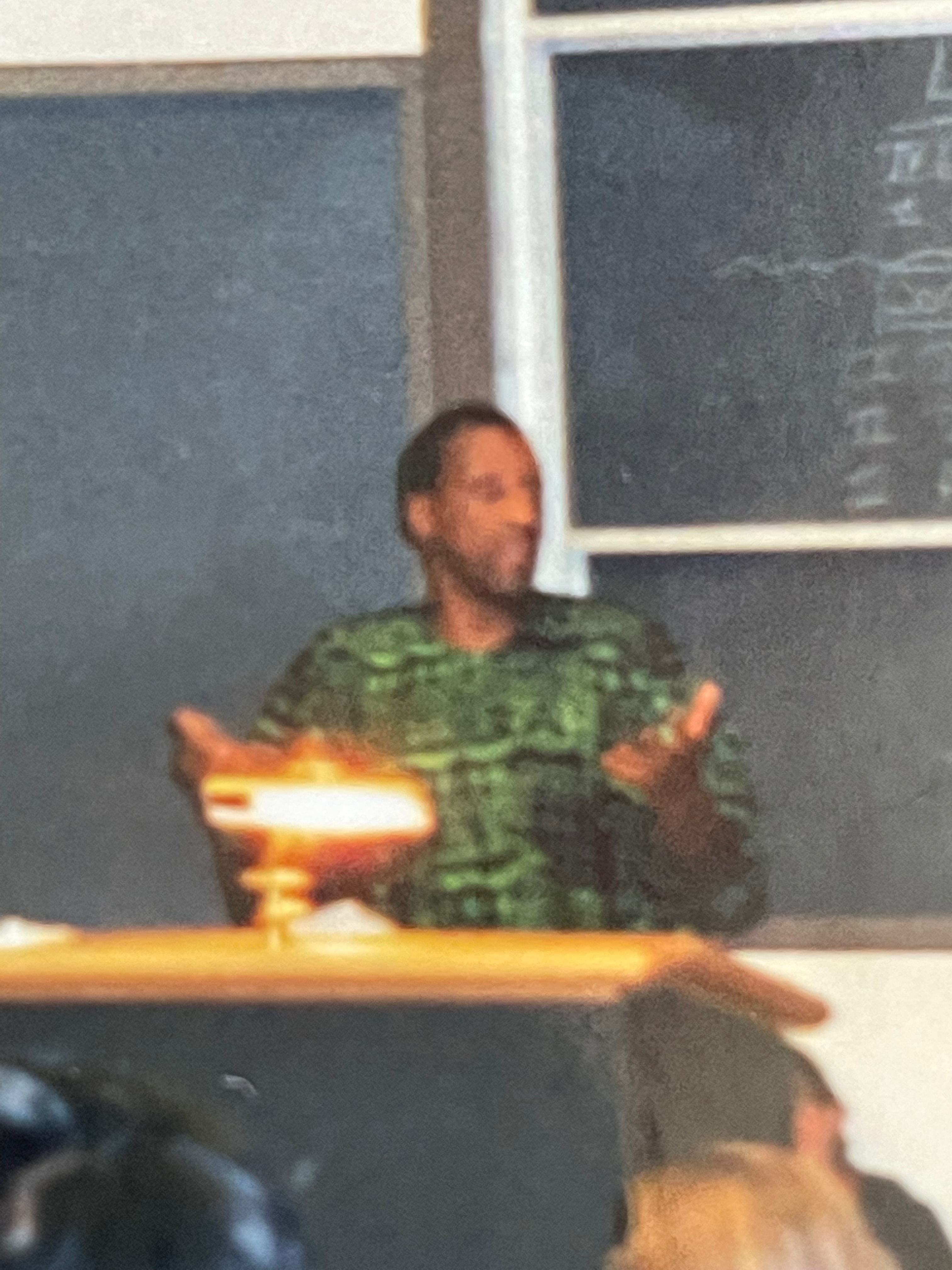 An old photo of mine of Dr. Turner tearing the Report on the Humanities to shreds at a faculty meeting.
An old photo of mine of Dr. Turner tearing the Report on the Humanities to shreds at a faculty meeting.
As the weeks wore on after the forum, I was shocked that the Arts School Deans were continuing the charade. Dr. Turner and others had completely rendered the report as illegitimate. We had protested and the clock was running out on the end of the semester. At the end of one such protest, I made an individual decision that in retrospect was a mistake and should have been a community decision. I decided to sit-in in front of the Dean's office until they said they would no longer consider the report's recommendation as it relates to Africana. As a student trustee, I was hoping to provide another pressure point, but it was an independent decision and I was worried what Dr. Turner and other students would think. A number of friends and activist students came to Goldwin-Smith as word went out that a sit-in had started. As the relatively sleepless days wore on, morale dropped. At just the right point, Dr. Turner made the effort to come by and let us know he appreciated our efforts. His affirmation meant the world. The Latinx students held their final protest of the year with us that next day. And after a week, Associate Dean Biddie Martin made the announcement that the administration would not consider the report for any policies as it relates to Africana. I tell this story not to claim any victory for myself or the students who sat in, as pressure was coming from all corners. I share the story to demonstrate how much Dr. Turner did for me: a white suburban kid who would not allow himself to protest first semester, ended up starting a sit-in as senior. It was the steel of his intellectual and moral arguments and exposing me to a rich tradition of resistance to injustice that gave me the resolve to commit to anti-racism not in a one off way, but as the way to live my life.
-
Dr. Turner's impact extended beyond student development and campus activism to helping frame the emerging cross-discipline, cross-region field of study that termed Africana. Many of the black intellectual giants came through Africana at some point in their careers, influenced by Dr. Turner and the constructs established within Africana. Africana shifted the frame for which we might view the African and diasporic experience of Africans. The cultural, historical, and philosophical connections from the diaspora and Africa were now addressed with much greater clarity. The political boundaries within Africa and in the Americas were largely European creations in which African culture and thought were not beholden and indeed transcendent. Africana grew out of a long tradition of Africans in the Americas yearning for those connections that had been denied through slavery, segregation, and conscious attempts to separate Africans from their history and culture. It was W.E.B Dubois in 1909 who used the term Africana to describe a Pan African encyclopedia that he wished to develop. Notably it was Africana faculty alum, Dr. Henry Louis Gates Jr., who ninety years later published the Africana Encyclopedia. In 1965, activists from the Student Nonviolent Coordinating Committee (SNCC) were invited by the President of a newly independent Guinea Conarky to make the connections to African people and self governance real. The SNCC delegation, financed by Harry Belafonte, included activist legends such as John Lewis, Fannie Lou Hamer, Kwame Toure (Stokely Carmichael) and others who had been in the trenches of the Civil Rights struggle. They spent time with Malcolm X who was there on his own journey through Africa and the Middle East. These Pan-African frames in which Africana was established were grounded in a deep history of yearning for those connections revealing itself anew amongst the contemporary generation of African American leaders.
The establishment of the Africana Center came at the request of student activists following the Willard Straight Hall takeover in 1969, arguably the most pivotal moment in 20th Century Cornell history. This is a vital distinction for Dr. Turner himself. He was not asked by the faculty, but by the students to establish the Center. The takeover and what followed paralleled the evolution of civil rights movements into racial justice, feminist, and social justice movements in which the limited gains made were challenged and often stalled by the reactionary politics. Cornell continues to deal with fundamental questions as to what degree it will embrace in deeds racial equity in the contest of building a diverse campus community not only. This fundamental question extends through time from the mid-1960s to today. Black students represent just over 5% of Cornell students today, a number relatively unchanged in the over two decades since my time on the East Hill. For much of its existence, Africana has been under-resourced and under appreciated to the point of fairly consistent attacks on its existence, the Dean's report on the Humanities being just one example of many. Hopefully with the investments in Africana over the last twenty years, that narrative is changing. Dr. Turner and the existence of Africana frequently held the mirror to Cornell and its commitments on diversity and racial equity. Given the often lackluster performance and falling short on commitments, one understands why the person and institution was targeted over the years.
To be clear, Dr. Turner was panned as a radical by many of his contemporaries. In many conversations I had with even the most liberal of administrators and members of governance, there was always a sense that Dr. Turner went too far and that he was sewing division on campus, but underneath I often felt a fear of the unknown because so few would put themselves into Afro-centric learning and discussion environments. The truth was however, that more often not that the fight was brought to him and I'm guessing like all of us he would have preferred to invest his time in his job teaching students, writing and researching and following his interests like his love of what he called "African classical music commonly referred to as jazz." More often than not, he and other activists were defending very limited gains, rather than pursuing radical change on the campus.
And it turns out that perhaps Dr. Turner wasn't so radical after all. While Dr.King offered the hopeful statement that the arc of the moral universe bends towards justice, Dr.Turner taught us to maintain a healthy skepticism of such hopeful sentiments. Our collective history, indeed our most recent history of Katrina, Ferguson, Charlottesville, and on and on demonstrates that this is not a maxim that ensures all will eventually be right. In the last decade, we have seen Black Lives Matter forming in the wake of the police killing of Michael Brown. A few years later, we saw a national uprising for racial justice and equity after the police murder of George Floyd. Tamir Rice, Sandra Bland, Breonna Taylor, Antwon Rose, Stephon Clark, Eric Garner, Erica Garner, Philando Castile, and on and on we say their names. For brief moments, the nation and institutions like Cornell said it has to be different this time. We can not keep turning away. The devaluing of black lives must stop. And in these moments over the last decade, I have thought to myself. "Jesus, how right was Dr. Turner? Radical? How about truth teller?" Time and again in these moments I will harken back to his class or a speech at a rally, grateful that he prepared us to step into the fray armed with history, culture, and courage of ancestors who fought and often gave everything in the struggle for freedom. He taught us that the arc of the moral universe doesn't bend unless we pull it, individually and collectively, towards justice.
-
The last time I saw Dr. Turner, it was at Professor Don Barr's funeral. Dr. Turner's words lifted our spirits again through humor and tender remembrance. You know Don would have felt his remembrance incomplete without words from his friend and partner on so many issues. From the anti-apartheid movement to co-teaching a class on racism for many years, their's was a partnership to be admired and from which we still can learn. Indeed, for many of us who experienced Don and Dr. Turner's racism class, they will forever be linked. Don showed the white kids what true allyship looks like, how leadership should be balanced with followership, especially on issues in which your privilege means you are not the one most directly impacted. I believe Don Barr had a retirement party of sorts at which I spoke. I remember spending plenty of time sharing my deep love and admiration for Don and not being fully able to separate my experience of Don with Dr. Turner. I shared a number of points of deep appreciation for Dr. Turner and the partnership of which so many students and the university benefited. I know Dr. Turner knew how much he meant to all of us.
Like so many of my peers who experienced his tutelage and guidance, he created the fertile intellectual and developmental ground for which to shape a life's mission and to build and maintain the moral courage to stand by truth and justice, even as so many countervailing enticements attempt to pull one off course. I remember him lamenting at a Unity Hour that in the earlier days of Africana many students went into teaching and social work but that more recent waves students were now looking to go to Wall Street instead. I am hopeful that such a tide has shifted back because he wanted us back in communities taking what we learned to make the world a more just place. While I feel that I am never doing enough, I am hopeful that Dr. Turner is satisfied with the impact he had on me and so many others, and hopeful that we all make him proud as we continue in this life. Indeed, after the initial shock of a legend passing on to join the ancestors, you soon realize that those who have stood on the side of truth and justice live on in deeply profound and meaningful ways. He lives on in all of us, not as a trite expression, but in reality, in the work that each of us does with our lives.
Malcolm X left a hope that applies so aptly to our saying goodbye for now Dr. Turner: "One day, may we all meet together in the light of understanding." Until then, Rest in Power dear teacher, activist, and sage of Africana.
This group is to support organizing for state conventions and to put pressure on Congress to address the full slate of Democracy and Human Rights Amendments.
A group to support organizing for the Life Amendment (Gun and Armaments Regulation) of the Democracy and Human Rights Amendments.
This amendment would clarify the well-regulated militia clause of the second amendment would state clearly that the Congress and the states do in fact have the power to regulate firearms and other weapons, that weapons of war should not be available for individual or local police use, and that the right to bear arms is not absolute.
A group to support organizing for the Health Care Rights Amendment of the Democracy and Human Rights Amendments.
The expansion of human rights must include the right to health care, not just emergency ambulatory care. "Promoting the general welfare" in the preamble to the Constitution and the principle of "life, liberty, and pursuit of happiness" enshrined on the Declaration as natural rights that must be guaranteed starts with health and access to health care. This amendment would give Congress and the states just the authority, but the responsibility to ensure that every American has adequate access to health care.
A group to support organizing for the Bodily Autonomy Amendment (Abortion Rights) of the Democracy and Human Rights Amendments.
With the overturning of Roe vs. Wade, we need to enshrine abortion rights into the Constitution so that the can be no legislation or judicial edicts that take away decisions that must be made by women and in cases of issues of health, with the health care provider.
